Radiant Minds: Nurturing Mental Health for All - ATRA's Mental Health Virtual Summit 2024
ATRA Learning Platform/Virtual
The American Therapeutic Recreation Association (ATRA) is excited to announce “Radiant Minds: Nurturing Mental Health for All” as the theme for the 2024 Virtual Summit. "Radiant Minds: Nurturing Mental Health for All" will allow you to discover the latest insights and strategies for promoting mental and behavioral health and well-being, fostering resilience, and enhancing mental health for individuals of all backgrounds.
This summit brings together practitioners, experts, caregivers, clients, advocates, and researchers to explore the diverse facets of mental health, share innovative approaches, and ignite discussions aimed at building a brighter, more inclusive future for mental wellness. Don't miss this opportunity to engage and join with thought leaders and practitioners toward radiant minds and thriving communities.
This virtual event will run February 1 - 29, 2024 on ATRA's virtual learning platform. Additional sessions may be added so please check back regularly to view the program.
Current Community Participation Research in Recreational Therapy
Session Length
90 minutes
Description
Community inclusion and participation is a key outcome of recreational therapy services. This session will provide an overview of the role of community participation in the health and well-being of adults with serious mental illness (SMI) being conducted by RT researchers at the Temple University Collaborative on Community Inclusion. This session will also provide research findings from studies currently being conducted by RT researchers. This includes 1) an intervention study supporting parents with SMI to enhance connections with their children through family leisure, as well as 2) an intervention study to support the development of collective efficacy among adults with SMI to increase community participation, as well as 3) a research study to identify everyday factors associated with loneliness and mattering among adults with SMI. Research findings will be discussed in terms of implications for recreational therapy practice and future research on community inclusion and participation
Focus of Presentation
Research
Community Involvement
Learning Outcomes
Upon completion of this session participants will be able to:
1. Describe community inclusion and participation for adults with serious mental illness
2. Identify differences between core and balance family leisure
3. Explain the role of collective efficacy in supporting community participation
4. Explain how RTs can facilitate positive social connections
Presenter
Bryan McCormick, Temple University
Biographical Statement
Bryan McCormick is a professor in the Department of Health and Rehabilitation Sciences in the College of Public Health at Temple University and a Principal Investigator with the Temple University Collaborative on Community Inclusion. Dr. McCormick is a past president of the American Therapeutic Recreation Association and is a fellow in the Academy of Leisure Sciences and the National Academy of Recreational Therapists. He is the author or co-author of over 90 peer-reviewed publications, more than 60 published research abstracts, 5 books and 22 book chapters. Dr. McCormick’s recent work has been published in Community Mental Health Journal, Mental Health and Physical Activity, Psychiatric Rehabilitation Journal, and Therapeutic Recreation Journal. He is the principal investigator of the project Being Needed: Building Social Connections that Matter to Reduce Social Isolation and Loneliness (90DPCP0011-01-00) funded by the National Institute on Disability, Independent Living and Rehabilitation Research. This work is focused on identifying risk and protective factors for social isolation and loneliness among community-living adults with serious mental illness, as well as developing and testing interventions. He is a two-time recipient of the Fulbright Scholarship to conduct research and provide lectures on psychiatric services in Serbia (2010) and Bosnia and Herzegovina (2017). Dr. McCormick has provided trainings in the US and internationally on the use of recreation as a form of psychosocial intervention in psychiatric rehabilitation. His teaching focuses on recreational therapy in psychiatric rehabilitation, and intervention research methods.
Head Shot
Co-Presenters
Dr. Gretchen Snethen, CTRS, PhD, Temple University
Biographical Statement
Dr. Gretchen Snethen is the Associate Director of the Temple University Collaborative on Community Inclusion and an Associate Professor in the Department of Health and Rehabilitation Sciences at Temple University. Her work focuses on exploring factors that influence community participation and developing and testing interventions to promote community participation among individuals experiencing serious mental illnesses. Recent projects include: ConnectionsRx, which is a distance-based intervention designed to support young adults with mental illnesses to develop and pursue community-based leisure and recreation activities. The goal of this project is to increase resilience, social connections, perceived efficacy, and independent engagement in the community; EPICC, which is an intervention for parents experiencing serious mental illnesses to intentionally use family-based leisure and recreation activities to enhance their parenting efficacy, connections, and communication with their children; and a recently funded project focused on understanding momentary factors that may impact physical activity and dietary behaviors of those living with comorbid type 2 diabetes and mental illnesses.
Head Shot
Shinichi Nagata, Ph.D., CTRS, University of Tsukuba
Biographical Statement
Shinichi Nagata is an assistant professor in the Faculty of Health and Sport Sciences at University of Tsukuba, Japan. He teaches adapted physical education and therapeutic recreation. He received his Ph.D. from Indiana University-Bloomington and was a postdoctoral research fellow at Temple University Collaborative on Community Inclusion. His research focuses on community inclusion of people with psychiatric disabilities, which addresses full participation in all domains of life, including leisure. Shinichi is an active member of a Therapeutic Recreation study group in Japan, sharing the current information about Recreational Therapy in North America. Shinichi also serves for the International Therapeutic Recreation Coalition, which is initiated by National Council for Therapeutic Recreation Certification (NCTRC). Shinichi’s leisure involves spending time with his wife, Maew, and growing children, Akira, Akari, and Kanako. Shinichi also likes to engage in cooking projects and backpacking travel.